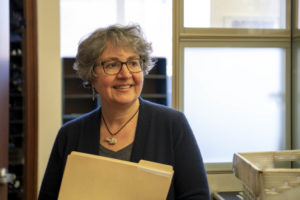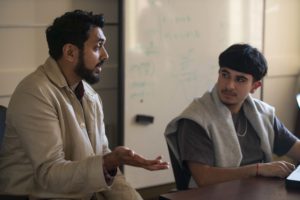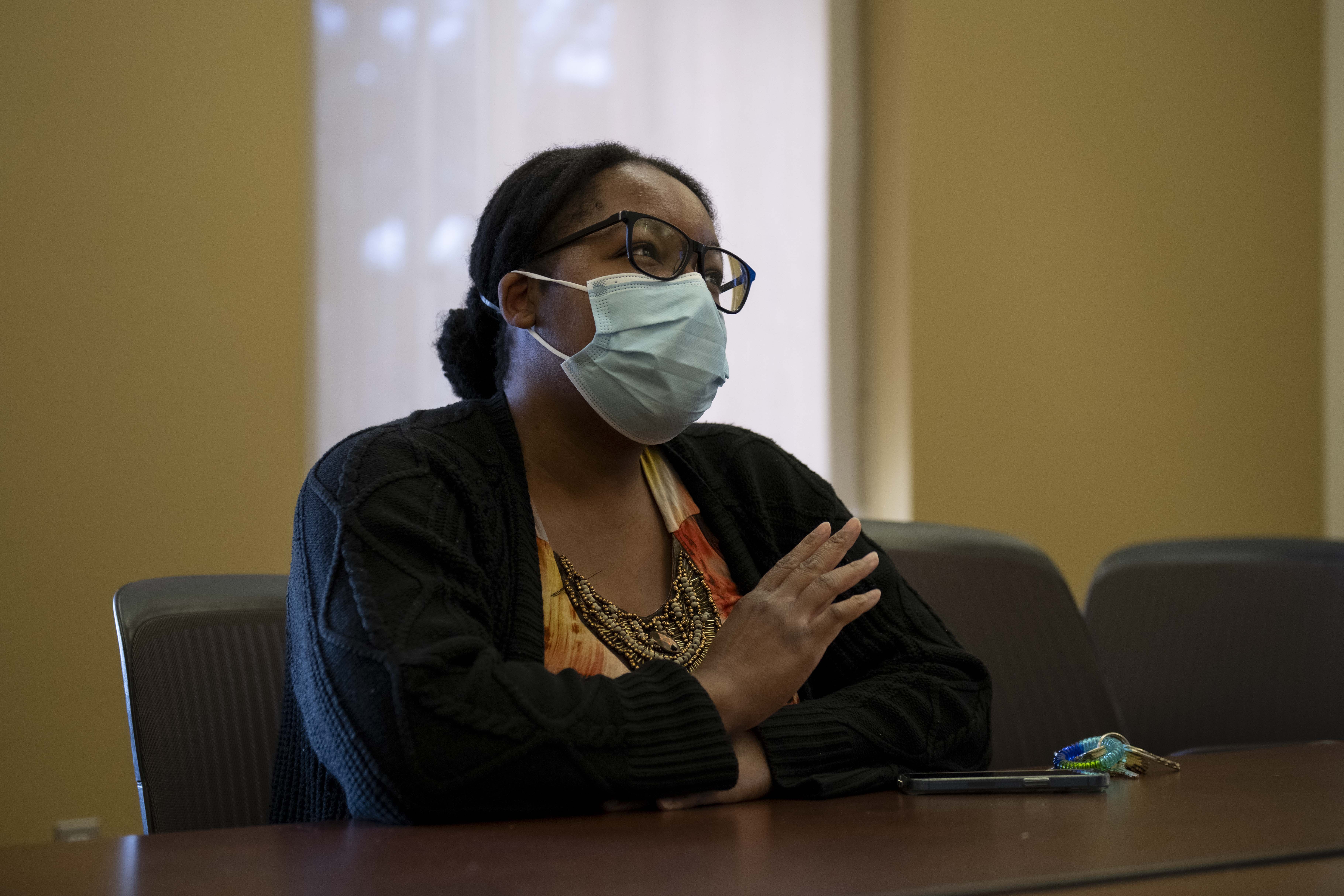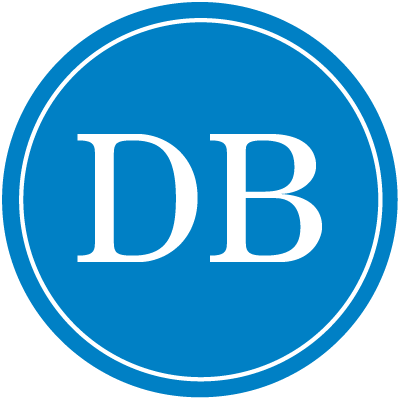Gissel Rios stands outside her office, where she works as the open science and collections librarian in the Louise M. Darling Biomedical Library. Rios collaborates with different librarians to make resources more accessible. (Leydi Cris Cobo Cordon/Daily Bruin senior staff)
By Alisha Hassanali
March 7, 2025 at 1:40 a.m.
This post was updated April 8 at 2:15 p.m.
Correction: The original version of this article incorrectly stated that the Campus Library Instructional Computing Commons Lab has five full-time librarians. In fact, it has five full-time library workers. Also, the original version of this article incorrectly stated that Mohsin Ali works with faculty to develop social annotation tools. In fact, he works with them to develop activities and assignments using these tools.
Dolly Parton inspired Gissel Rios to become a librarian.
While studying at Georgetown University, Rios was captivated watching Parton speak at the Library of Congress about her Imagination Library program. Parton’s work providing free books to children revealed the power of reading and the importance of libraries, Rios said.
“The more that I thought about it, the more that I realized that it was something that I wanted to do,” said Rios, the open science and collections librarian at the Louise M. Darling Biomedical Library. “I wanted to have a job that was varied but really also empowered people with knowledge.”

From lending electronic devices to helping students publish their research, UCLA’s nearly 90 librarians, along with library workers, ensure research and resources are accessible to students and faculty. The library staff work across UCLA Library’s 12 locations, such as the Charles E. Young Research Library and Powell Library.
Rios said promoting library resources and services to new UCLA families on Bruin Day has been one of her favorite memories as a librarian. As a first-generation college graduate, Rios said she finds it important to make the library a more welcoming, accessible space.
“What I love about being a librarian is every day is really different – and I think that it’s only made … more different because of our diverse student body,” Rios said.
To ensure she is meeting the needs of students, Rios said she collaborates with the David Geffen School of Medicine librarian, a clinical librarian and liaisons from the Schools of Dentistry and Nursing. The team, for instance, provided students with anatomy kits from the Biomedical Library containing models of bones, she said.
Beyond books, the library also has digital staff working in the Campus Library Instructional Computing Commons.
Founded in 1996, the CLICC Lab – which has five full-time library workers and about 40 library student workers – provides technology services and shared equipment loans. Yet JS We, a fourth-year financial actuarial mathematics student, said many people do not know about the range of resources CLICC provides.
We said students often ask if there is a quiet space where they can take a Zoom call, not knowing that the lab offers second-floor ventilated booths with power sockets for them to reserve.
The library’s staff also printed pickup lines on specially made Valentine’s Day cards, including ones reading, “Are you an overdue book? Because you have fine written all over you,” and, “We just CLICC.” Mikayla Silverman, a student lead consultant and fourth-year microbiology, immunology and molecular genetics student, said she delivered the library puns with chocolate to her fellow consultants to spread joy.

Isabel Delgadillo, a fourth-year chemistry student who works alongside Silverman, said though her daily duties include maintaining the devices, her favorite part of the job is the sense of community.
“Some of the most fun parts are the quiet little moments where you get to catch up and hear about each other’s lives,” she said. “There’s really a sense of community here that I don’t know exists at other on-campus jobs.”
During winter 2024, 2,528 undergraduates and about 600 graduate students used the CLICC lab, which translates to around 1 in every 12 undergraduates and 1 in 23 graduate students, according to the lab’s data. The statistics show the lab’s popularity is growing, We said.
Jessica Mentesoglu, head of digital initiatives and information technology operations and services at UCLA Library, said the library has changed significantly in her 25 years working there.
“Today, everybody’s got a smartphone. Everybody’s got a laptop. But back in the late ’90s and early 2000s, people didn’t have that,” she said. “The only way they could use a computer was to come to that lab downstairs.”
With constant technological changes, librarians are also deciding how to implement artificial intelligence into research and reading, said Mohsin Ali, an instructional design and outreach specialist for the humanities and social sciences.
Ali, a former lecturer, said he has noticed some students use AI chatbots to summarize information instead of reading assigned texts. To combat this, he works with faculty to develop activities and assignments using social annotation tools to make students slow down, read, make comments and then engage with those comments through discussions or essays.
Ali said he hopes to teach students information literacy, including skills in conducting research and using, categorizing and sharing information.
“I get to play this bridge between the knowledge experts and consumers of knowledge,” he said.
As a co-liaison for Cluster 27: “Global Islam,” Ali conducts workshops about topics including creating annotated bibliographies and conducting academic research, he said. He added that he recently gave a literary analysis presentation to students in the cluster course.
“I brought in (Kendrick Lamar’s) ‘Not Like Us’ and YouTube comments to show them, ‘You guys all do literary analysis daily in your life,’” he said. “If you’ve ever made a comment about why you enjoy a poem or a film or some type of art and told someone why, you’ve done literary analysis.”
Tierra Sowell, Powell Library’s access services lead, said the library also ensures all students and faculty are connected with the resources they need, and it is consistently reevaluating how it can make its collections, spaces and services more accessible.

Similarly, Rios said collaboration with other departments and librarians is central to a librarian’s role, adding that one of the initiatives she is most proud of has been collaborating with the communication department to make digital signage about the anatomy collections.
Rios added that she also spreads awareness about transformative agreements, a series of contracts that the UC system has to help researchers publish their work at little to no cost.
The most rewarding parts of her job, Sowell said, are seeing the end results of patrons interacting with projects her team has spent months working on.
“To just express, ‘Hey, we have this service. Are you interested?’ and to see someone’s eyes light up because that’s exactly what they needed – that’s the part for me that I look forward to,” Sowell said.

